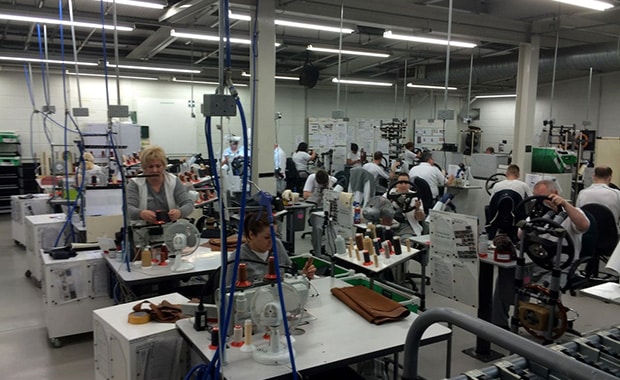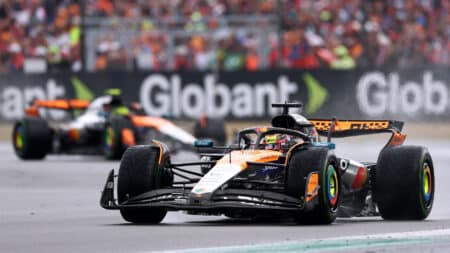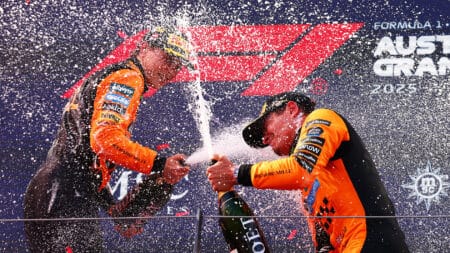
Horner's departure shows age of the maverick F1 boss is over
Christian Horner has now left Red Bull, the last of a certain breed of F1 team principal

I went to see Bentley in Crewe on Wednesday for reasons that will become apparent in a few weeks time, and was lucky enough to be given a tour of the factory. For all those who think Bentley is now just a badge and its products mere VWs differentiated by as small and superficial degrees as deemed necessary to charge a substantial six figure sum for even the very cheapest, I’d like to offer some statistical reassurance.
In a typical VW factory, 80 per cent of the workers are on the line, with 20 per cent involved in building specialised off-line assemblies. At Bentley these numbers are precisely reversed. While on the line a Mulsanne will spend 90 minutes at each station before moving on. A Nissan Micra spends 61 seconds.
Even a Continental, whose bodies arrive pre-painted and are merely assembled in Crewe, takes 125 hours to turn into a car: a VW Polo takes 10 in its entirety, less time than is taken to assemble a single picnic table for a Mulsanne.
All Bentley leather is sourced from Southern Germany and only from bulls. Apparently cow hide is no good because the skin stretches during pregnancy. Even so Bentley employs specialist teams in Crewe to scrutinise each hide for signs of scarring, graining, stretching, disease, insect bites and boils.
On average almost half of every hide is deemed not fit for use. Even a Continental GTC with no need for a roof lining still accounts for between eight and nine hides; for a Mulsanne 14 bulls are required to make over 350 leather covered components. And if you want the Bentley wings motif embroidered on any one of them, each one requires 5103 stitches.
Less easy to illustrate statistically but no less powerful proof that Bentley really does do things differently is the aroma when you enter the climate controlled room where various wood veneers are kept stacked in piles hundreds deep. In any Bentley, the wood comes from just one tree and the veneers matched so that whatever the pattern on one door trim, its mirror image will be on the other.
Bentley still sends out teams to individual auctions to source their wood and if you have a special tree in your garden, so long as Bentley are happy the wood will last the lifetime of the car and you are happy to pay for privilege, they’ll send around a man with a chainsaw.
But life at Bentley is changing. Early in 2016 it will offer its first SUV for sale and instead of being assembled in VW’s state of the art factory in Bratislava where the other products to share its platform (Audi Q7, PorscheCayenne and VW Touareg) are built, bodies in white will be transported to Crewe for painting, assembly and trimming which means each will have more of its construction done in this old factory built to make Merlin aero engines in 1938 than any current Bentley save the Mulsanne.
Land has been purchased and it looks likely that the SUV will replace the Mulsanne in the main assembly hall, and a new specialist built facility constructed for the Mulsanne.
It is true that under the skin much of the new SUV will be shared with other VW group products and if a Bentley SUV has the same window winder motors as an Audi SUV I’m not sure I could care less. It matters more to me that the things that make Bentley a Bentley – the way it drives, its smell and the quality of the materials you see and touch come out of Crewe. And they do.
When I think of what this place used to like when Vickers was running the business into the ground, when I think that production here will soon be more than 10 times what it was 15 years ago and all the jobs that means both here and the local supply chain, it is impossible to conclude that anything but good has come from VW’s acquisition of the business. The choice was never between British or German ownership of Bentley but between a German-owned Bentley and no Bentley at all.
What’s more it seems the stars are finally coming into alignment on the race side too: the FIA is now considering two new classes for production-based sports cars – GT Plus and GT which in loose terms would perform roughly the same jobs of as the GT1 and GT2 categories that used to race happily together at Le Mans. If the ACO agrees to it, Bentleys will be back at Le Mans, and by 2017 at the latest.

Christian Horner has now left Red Bull, the last of a certain breed of F1 team principal

Was Oscar Piastri the real winner in the long run after Silverstone? asks James Elson

Lewis Hamilton hadn't won in almost three years – and then produced a sensational victory at Silverstone 2024. James Elson explains why it was his best ever

Describing this year's championship race as a 'battle' might be slightly over-egging it, writes James Elson